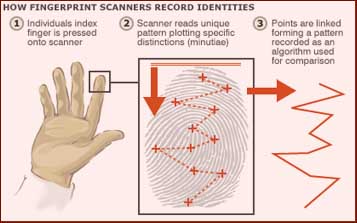|
|
|
The UK government has set out its revised plans for introducing national ID cards. Under the new proposals, most people will not now have to give their fingerprints when getting a passport until 2011/12 - three years later than had previously been planned.
Starting in December this year, the scheme will begin with the introduction of ID cards for non-EEA foreign nationals; initially starting with categories the government considers most at risk of abuse, which include foreign nationals seeking to enter or remain in the country as a student or on a marriage visa. |

|
|
The government says that within three years all foreign nationals applying for leave to enter or remain in the UK will be required to have a card, with around 90% of foreign nationals in the UK covered by the scheme in 2014/15.
The scheme will be extended to UK citizens from 2009, with the first cards issued to people working airside in the country’s airports. The government says that Home Secretary Jacqui Smith and Transport Secretary Ruth Kelly will jointly chair a meeting of industry representatives to ensure the smooth introduction of these new measures. From 2010 young people will be able, on a voluntary basis, to get an identity card. The government says this will assist them in proving their identity as they open their first bank account, take out a student loan or start employment. |
|
Related sources: Sussex: Should pupils pay for lunch with fingerprints? IRAN: Sir, we need your Fingerprints today! Czech Republic: We need your Fingerprints in 2009 Heathrow airport first to Fingerprint Japan detains 5 with new Fingerprint check Sex I.D.: Find out how your mind works! Strange but true: Fingerprints, Toeprints & ... Tailprints? UK 'Celebrity Handprints' book USA Celebrities lending a Hand for charity Talk to the Hand Milestone for unique Bionic Hand |
|
COPYRIGHT © 2002-2013: Martijn van Mensvoort (Dutch version: |